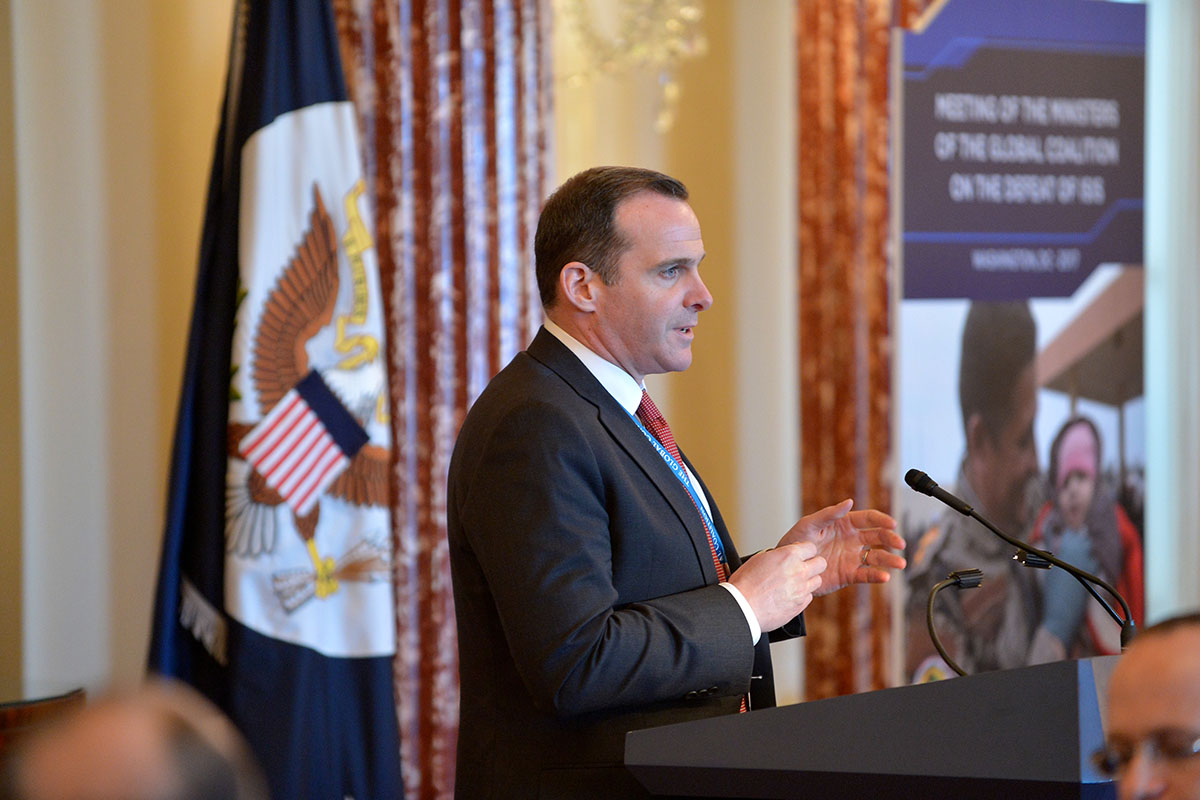US: Iraq should open Kurdish airports, pay salaries. Why this new position?
For the first time in four months, when Baghdad began to impose punitive measures on the Kurdistan Region for its independence referendum, a major US official has publicly called for them to end.
Speaking on Sunday to Abu Dhabi’s Sky News Arabia, while he was visiting Kuwait, Brett McGurk, Special Presidential Envoy to the Global Coalition to Defeat the Islamic State (IS), said that “the airports in the Kurdistan Region needed to be reopened.”
McGurk also stated that Baghdad needed to pay the salaries of government employees in the Kurdistan Region and the dispute over control of land borders needed to be resolved as well.
Prominent international officials—including the President of France, German Foreign Minister, and Dutch Prime Minister—have all publicly criticized Baghdad for one or more of these continuing measures that penalize a civilian population.
But, the Trump administration has been silent. It has not said a word publicly—although it is the principle Western power in Iraq and the main backer of Prime Minister Haider al-Abadi.
Instead, US officials have typically characterized these issues as an internal matter, which Iraqis could resolve on their own.
Washington seeks to secure Abadi’s victory in the upcoming elections, so it has said nothing publicly about Abadi’s abusive steps, in the belief that public criticism would harm his chances of success.
In short, Washington had given Abadi a blank check.
So, what changed? Why did a central figure in formulating US policy on this issue suddenly call on Baghdad to end its most abusive measures against the Kurdish people?
According to a well-informed Washington source, it was Abadi’s electoral alliance with the pro-Iranian Shia militias, the Hashd al-Shaabi, or Popular Mobilization Forces (PMF).
On Jan. 13, Abadi announced that he would run in the elections with the PMF leaders. The announcement shocked many Iraqis as well as foreign observers.
Abadi’s new allies included Qais al-Khazali, who, backed by Iran, was involved in killing Americans during Operation Iraqi Freedom (OIF) and spent three years in US detention.
According to this Washington source, that alliance—although it proved short-lived—has significantly increased pressure from Congressmen who have long opposed the State Department’s uncritical support for Abadi.
A major criticism from Congressional figures, like Sen. John McCain (R, Arizona) and Rep. Ron DeSantis (R, Florida), has been that Iran so dominates the Iraqi government that the US is making a big mistake by subordinating a long-time ally—the Kurds—to Baghdad.
In a Congressional hearing last week, DeSantis asked, “Don’t we need to support people like the Kurds more robustly than we have?”
Michael Pregent, an Iraq expert at the Hudson Institute who served in OIF as an adviser to Generals Petraeus and Odierno, agreed. He told DeSantis that Abadi’s alliance with the PMF was “very telling,” adding, “the narrative that Abadi is our guy in Baghdad is falling apart.”
The US shift may also be influenced by the Gulf Arabs. They are partners in the US effort to counter Iran’s influence in Baghdad, but they see more clearly how it is failing.
Hassan Hassan, a senior fellow at the Tahrir Institute for Middle East Policy in Washington and author of a best-selling book on IS, wrote last week in The National, an Emirati paper, that Abadi’s alignment with the PMF undermines “the view in Washington that [he] is a bulwark against sectarian forces with strong links to Iran.”
Ranj Alaaldin, a fellow at the Brookings Institute in Qatar, wrote similarly, noting that “Abadi came into office without a significant political and popular base”—the basic reason for his attempted alliance with the PMF.
On Sunday, before speaking with Sky News Arabia, McGurk met senior Kuwaiti officials to prepare for the donor’s conference to fund reconstruction in Iraq, which will be held in Kuwait.
Did Kuwaiti officials complain about Abadi, his electoral alliance with the PMF, and his anti-Kurdish measures?
The Sunni Arab states tend to be friendly toward the Kurdistan Region because they see it as an anti-Iranian force.
Whatever the reasons behind McGurk’s statement, a significant segment of Iraqis are likely to welcome it.
As Entifadh Qanbar, an Iraqi-American, a Sunni Arab, and head of the Future Foundation in Washington DC, told Kurdistan 24, McGurk had made the “right step.”
Qanbar added, however, that the US needed “to address the bigger issue,” because Abadi “is failing.”
He suggested that the US should “support a new Iraqi partner, who could win a significant number of votes, and who would be a non-Islamist and a natural US ally.”
Qanbar has in mind the secular Shia politician, Ayad Allawi, Iraq’s first post-Saddam Prime Minister. Indeed, from a Kurdish perspective, Allawi would probably be the best choice.
Source: Kurdistan24

